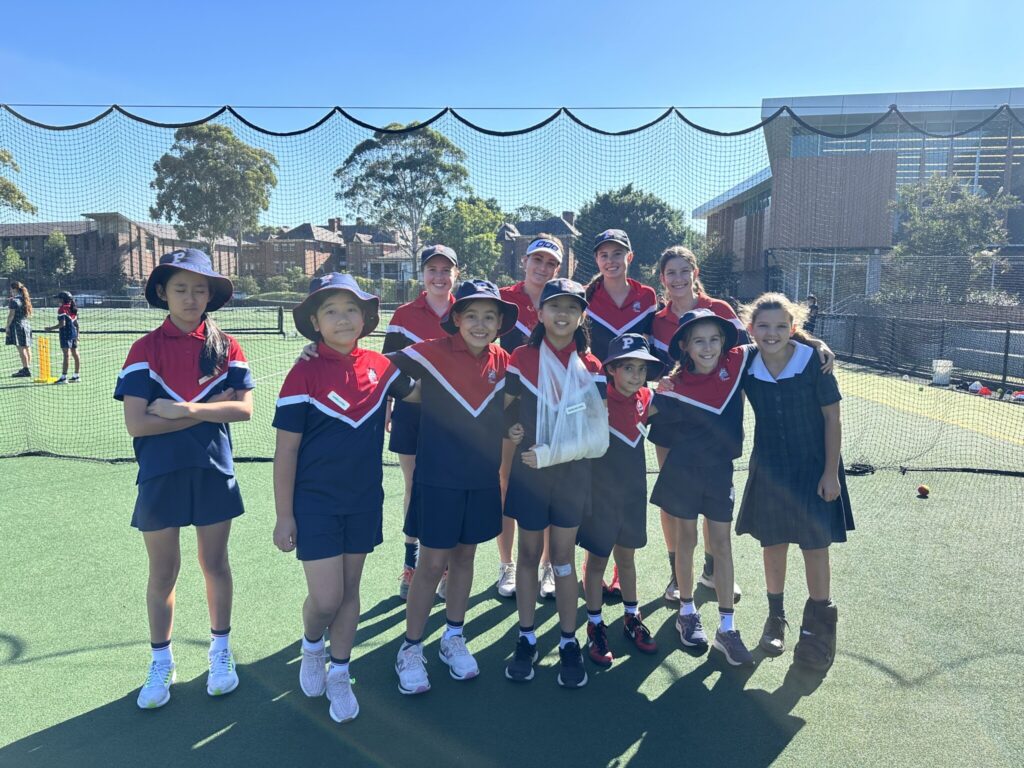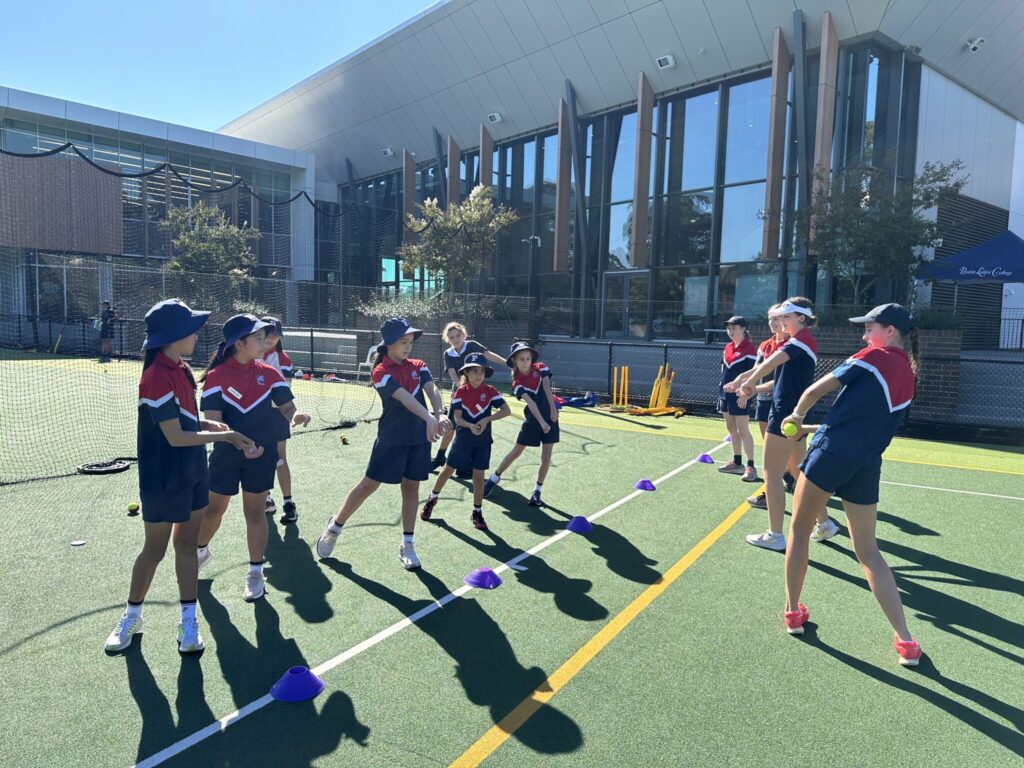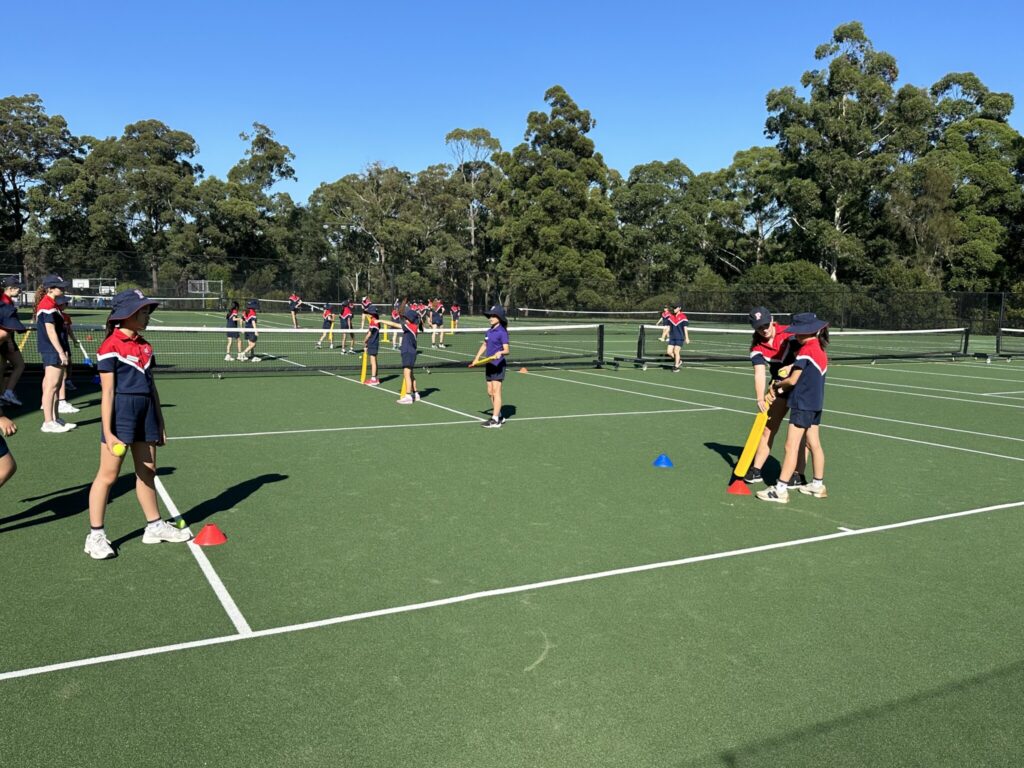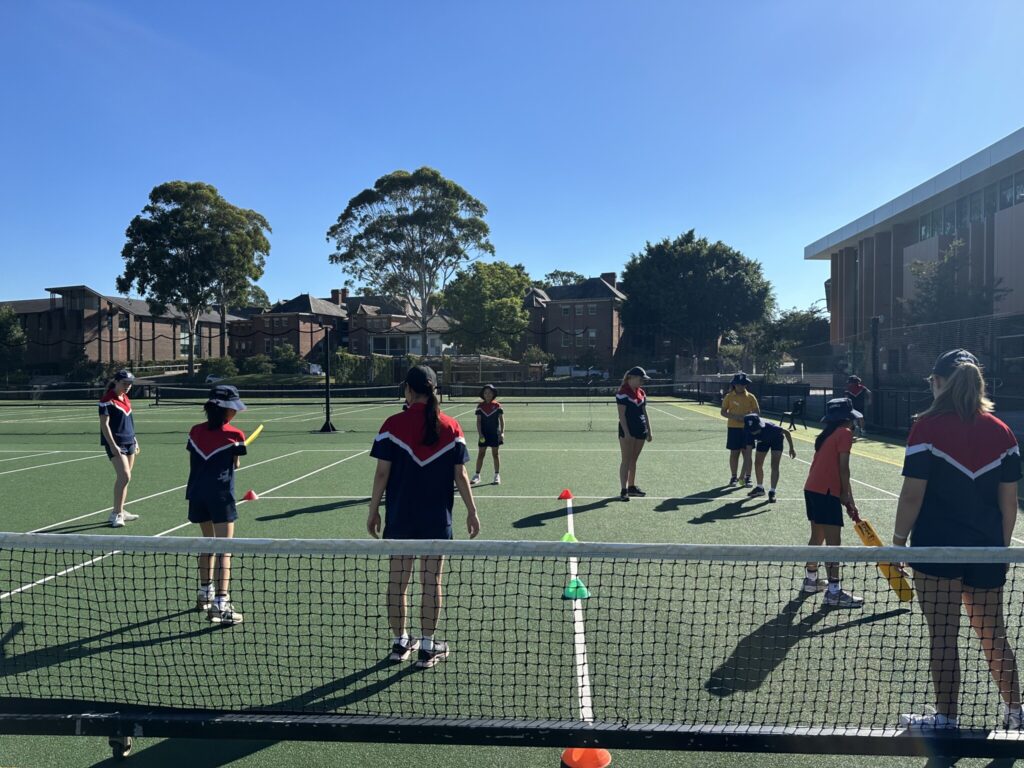From the Principal
Greetings from Bourke, where tonight Matt and I have the absolute pleasure of staying for the night with the Ritchie family, parents to Allie in Year 8 and younger sister Georgie, who starts Boarding with us next year in Year 7. A special thank you also goes to the Barwick (Gravesend) and Beveridge (Young) families for their warm hospitality and for hosting us overnight on our journey.
We are now more than halfway through a six-day 2520km road trip stopping at Port Macquarie, Walcha, Gravesend, Pallamallawa, Moree, Walgett, Bourke, Nyngan, Griffith, Young and Moss Vale before returning to Pymble on Sunday evening. It is such a privilege to spend time in the homes and towns of our current, future and former Boarders, listening to their stories, and getting to know the special people and places in their lives. I’ve also had the joy of meeting many grandparents along the way, which has been extra special.
The photos above and below capture some of the many happy reunions with several Boarding families who are dear to Pymble.
Having been a Boarder from Years 6 to 12, I have a deep appreciation for the sacrifices families make to send their children to a city campus far away from their country home. Our Boarders are an important part of College life and we have a long and proud history of supporting rural Australian families. From the very first day the College opened for business in 1916, 20 of our 60 students were Boarders. Today, 84 per cent of our Boarders are from rural/regional Australia and they mostly (77.5 per cent) call rural/regional NSW home.
Excitingly, our youngest Boarders now have a bespoke Boarding House to support their transition from home to campus life, which you can view here.
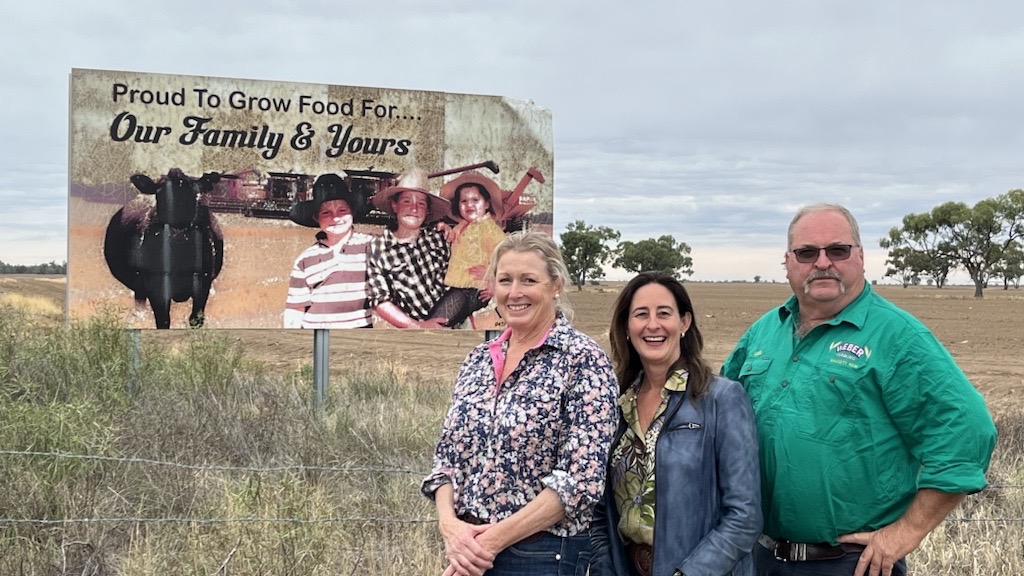
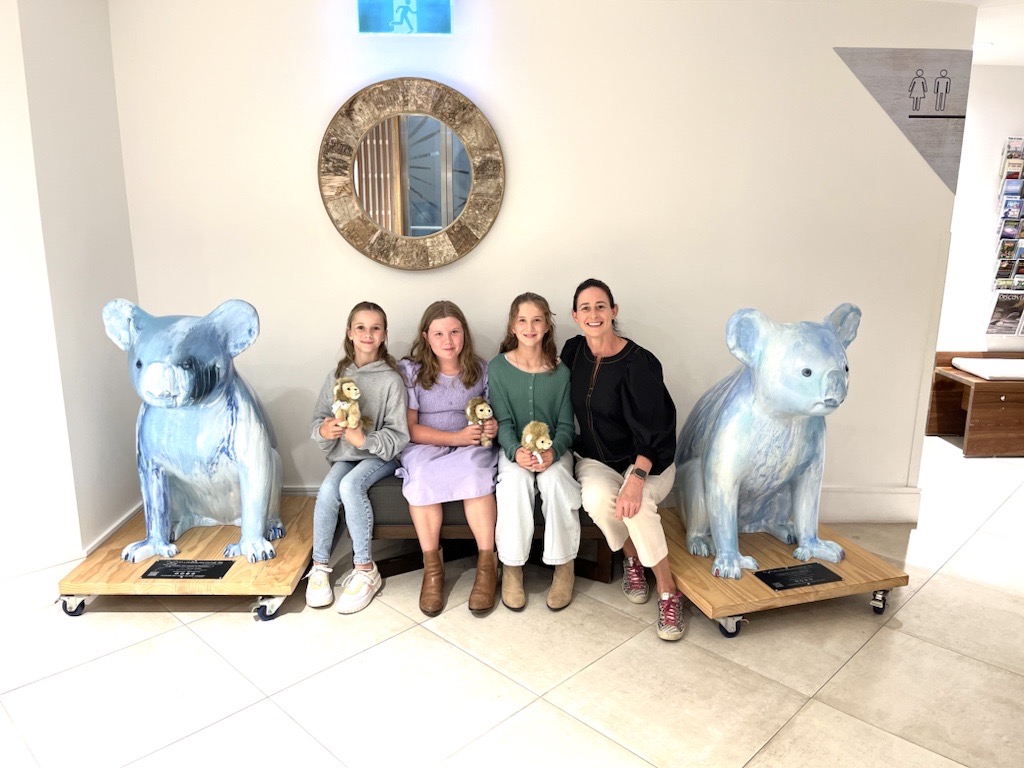
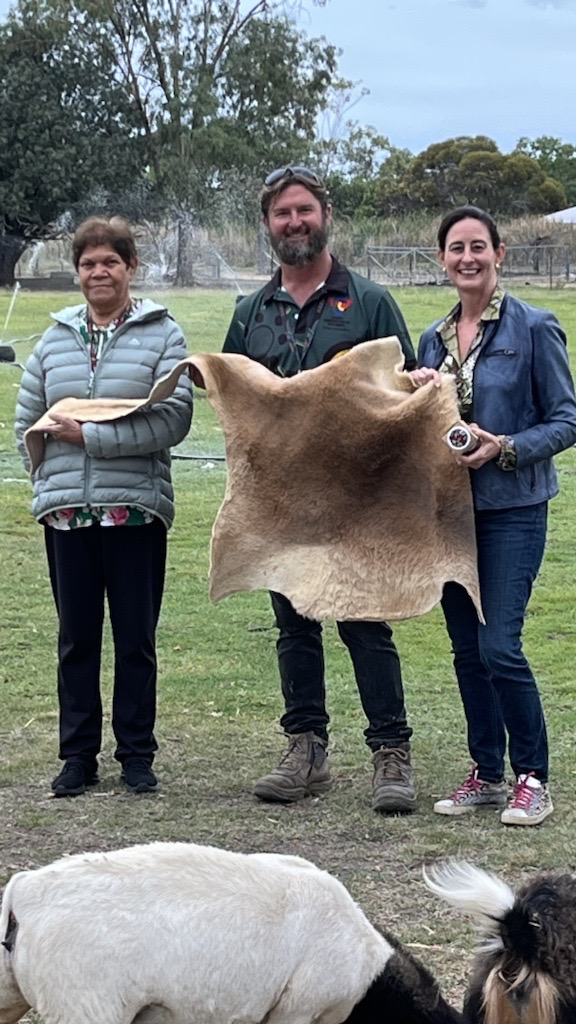
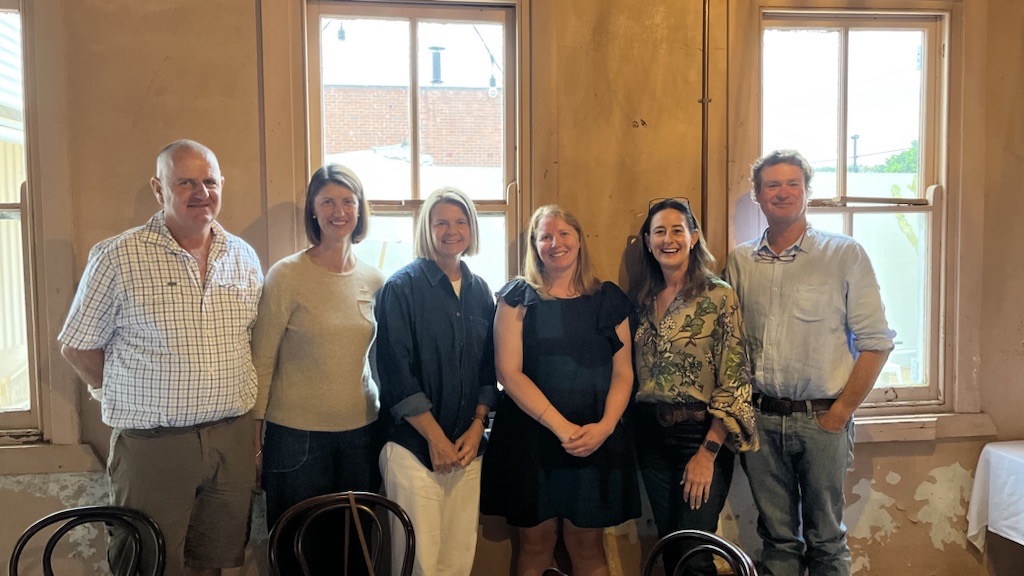
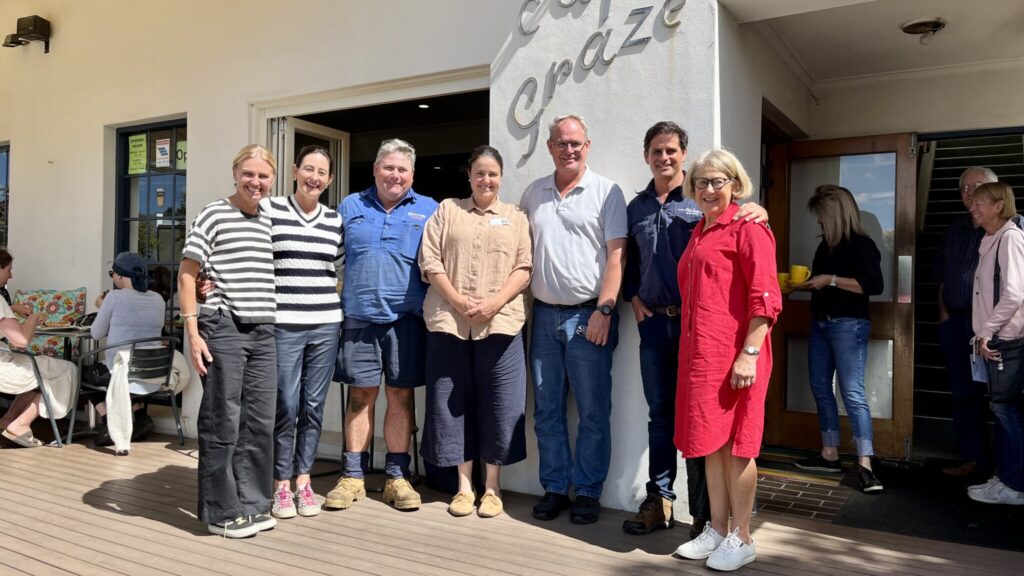
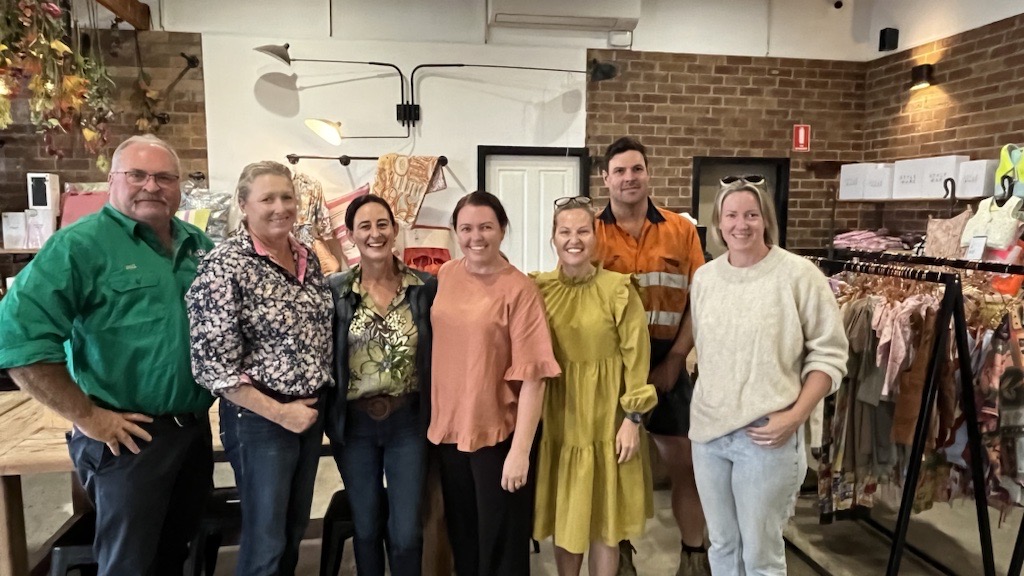
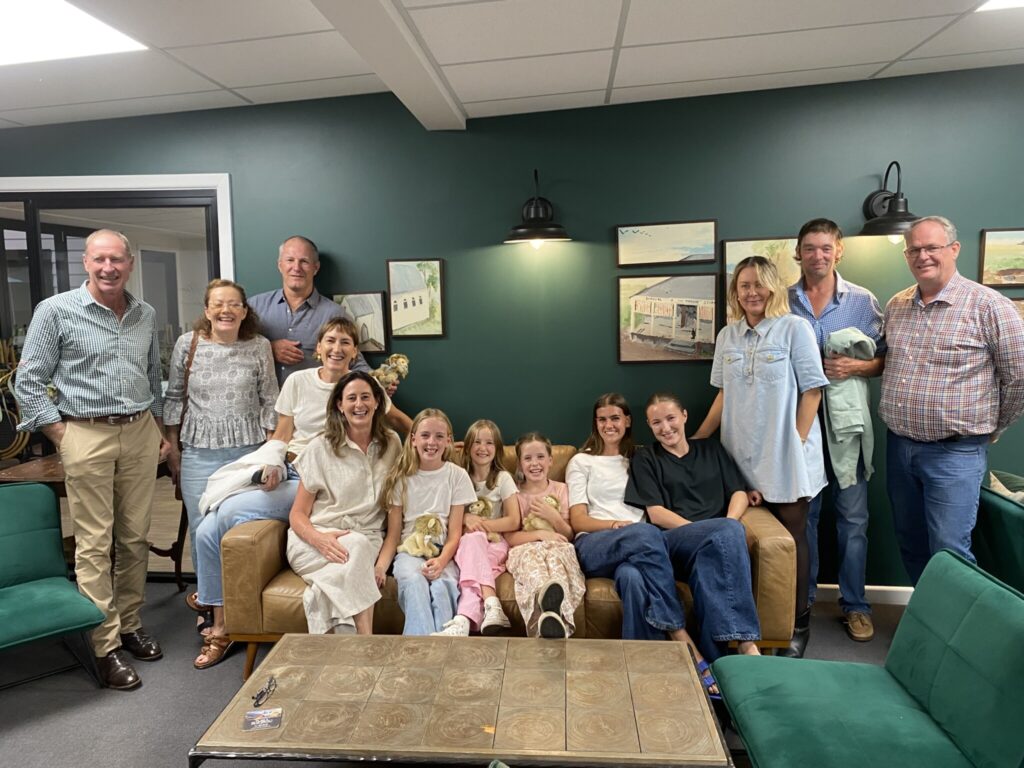
Feeling connected is an important part of belonging to a community. This trip, and other opportunities to connect with our Pymble family, are all ways in which we can work to bridge the gap of distance, in relation to our Boarding families, and time, in relation to our ex-students, who will always be an important part of our community.
Recently, I shared with staff a definition of family which really speaks to me about the intent behind the environment we seek to foster at Pymble for all in our community.
An ideal family can be defined as a unit that provides love, support, and stability to its members. It is a family where each member feels valued, respected, and understood. An ideal family fosters a positive environment for growth, learning, and emotional wellbeing.
This beautiful definition comes from High Expectations Counselling Orlando and explains why I feel so strongly about labelling our community as a family and working hard to support the conditions that create a positive, stable and loving environment where we all feel valued, respected and understood and, in particular, where our students can learn and be supported emotionally.
So, what leads to an ‘ideal family’? High Expectations Counselling describes the conditions that support this as an outcome.
- Communication: An ideal family emphasises open and effective communication. Family members are encouraged to express their thoughts, feelings, and opinions. Healthy communication helps in resolving conflicts, building strong relationships, and promoting emotional wellbeing.
- Love and support: Love and support are the foundation of an ideal family. Family members show unconditional love, care, and support to one another. They celebrate each other’s successes, provide comfort in times of need, and offer a safe space to express oneself.
- Trust and respect: Trust and respect are essential aspects of an ideal family. Family members trust and respect each other’s boundaries, privacy, and individuality. There is mutual respect for each other’s opinions, choices, and decisions.
- Quality time: An ideal family values spending quality time together. They engage in activities that promote bonding, such as family meals, game nights, outings, and vacations. Quality time helps in building strong relationships and creating lasting memories.
- Shared values and goals: An ideal family has shared values and goals. They have a common purpose and work together towards achieving it. Shared values and goals create a sense of unity, purpose, and direction for the family.
- Conflict resolution: In an ideal family, conflicts are addressed and resolved in a healthy and constructive manner. Family members practice active listening, empathy, and compromise when resolving conflicts. This promotes understanding, strengthens relationships, and teaches valuable conflict resolution skills.
As we travel this Pymble journey together, it is worth reflecting on these conditions and qualities, which I see in bucket loads among our community, and how we can channel more of them into both our work and our personal lives.
Sharing stories brings us closer
We have been sharing many stories on our road trip, which feels appropriate given that our annual Sharing Stories Festival run by our combined Libraries staff has commenced back on campus.
It’s my pleasure to handover to our two Year 11 Library Captains, Tessa Halstead and Arana Roy, to tell you about some of the highlights of the six day-program, which sits under our Social Intelligence pillar and is designed to promote connections, understanding, empathy and belonging at Pymble.
“The Sharing Stories Festival is a perfect opportunity for students in Years 2 to 12 to make new connections and learn from others’ experiences throughout their careers and passions, from writing to illustrating to volunteering.
“Junior School students in Years 3 to 6 are enjoying the vibrant Living Library at lunch times. These sessions featured members of the Pymble community presenting a phenomenal exhibit of ‘stories’ using calligraphy, cake decorating, braiding, saree draping, paper craft and playing Pipa to showcase important parts of their culture.
“Year 2 had a fascinating time in a drawing workshop with First Nations illustrator, Jade Goodwin, who shared some of the drawing techniques she uses to illustrate Ash Barty’s children’s books.
“One of this week’s activities was a talk during the Year 11 and 12 assembly by ABC News Reporter, Lydia Feng, who shared stories about her impressive career in journalism and her life experiences that encouraged her passion.
“We also enjoyed a presentation by one of our Junior School teachers, Mrs Victoria Adamovich, about her debut picture book, The Story of My Names, published in 2023. A recent Pymble graduate, award-winning artist and inspiring animator, Jacqueline Qin (2023) joined her to speak to the audience of Pymble students, enthusiastic writers and artists about how her HSC Design and Technology project became the illustrations in Mrs Adamovich’s book.
“Today there was more hands-on activity in Fabric for a Feast, which is a project initiated by Jane Théau in 2015 who is aiming to make a ‘never-finished’ tablecloth from an antique linen sheet. If you happen to search among the stitches, you will find an array of beautiful unfinished stitches, each more stunning than the last. Amidst the stitches you may come across a lotus flower begun by someone who sadly passed away before they could finish it. You may also come across a breathtaking eye stitch made by a Syrian refugee.
“In addition, we heard from two award-winning authors, Maryam Master, who presented a writing workshop for students, and Tania Blanchard who spoke about her most recent historical fiction novel, A Woman of Courage. Fiction writer Erin Gough will be hosting a final writing workshop for Years 7 to 11 on Monday 8 April.
“You can click on this link to see the program of activities planned up until the Festival ends on Tuesday. All information can also be accessed through the Pymble Portal and email. So, get excited and we hope to see you all there!”
Your Library Captains, Tessa Halstead and Arana Roy
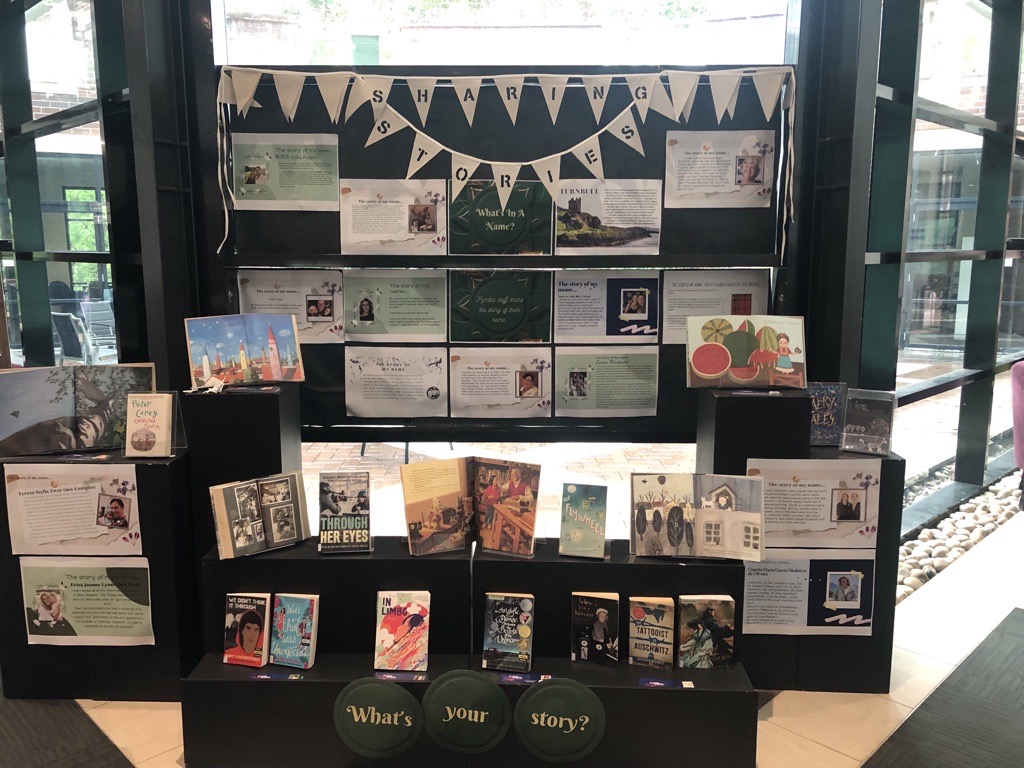
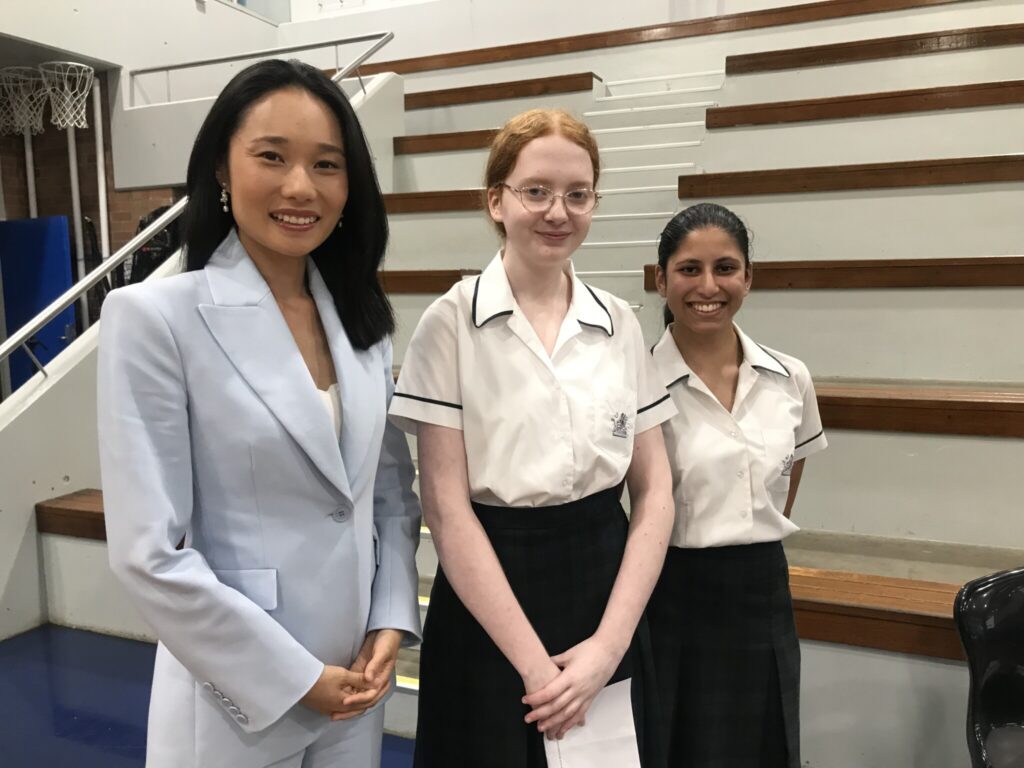
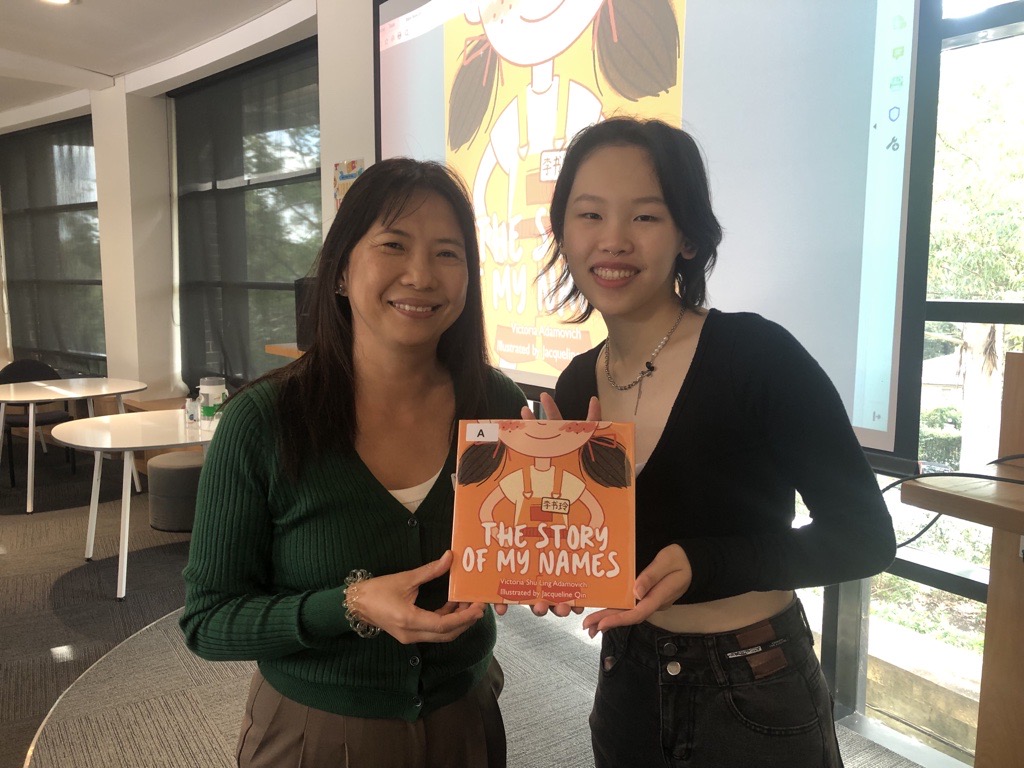
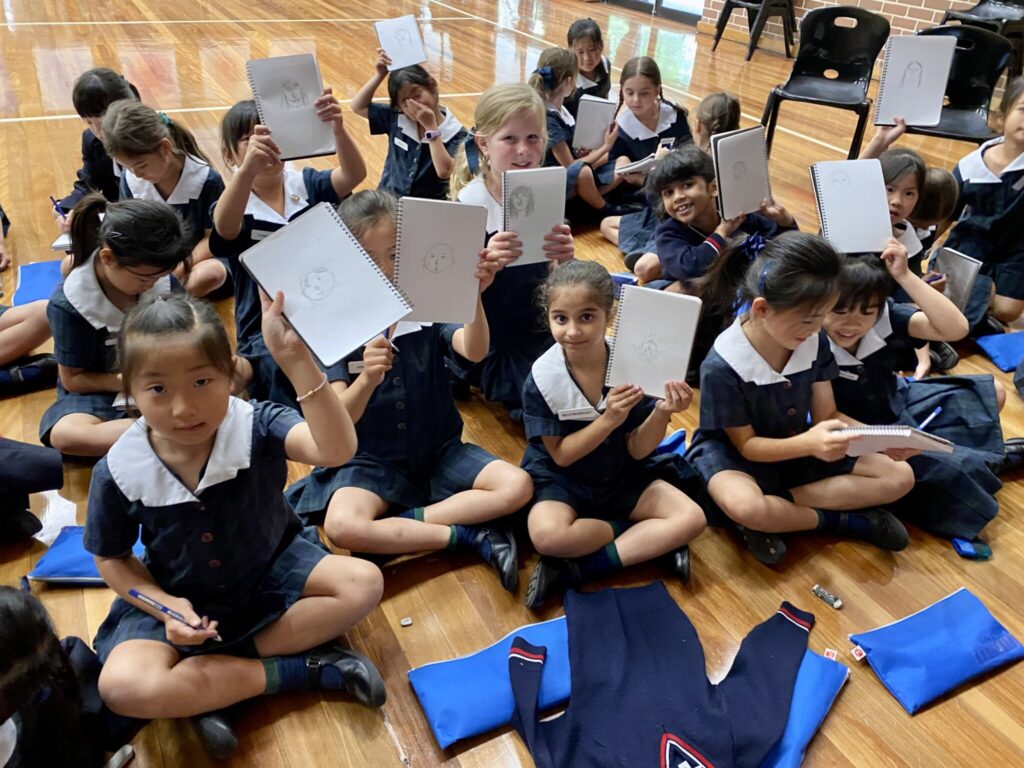
Windows into Learning
The stories of learning continue this week with submissions from our wonderful Junior and Secondary School teachers. Please enjoy their insights into teaching and learning at Pymble.
Year 3 Mathematics
“Year 3 has been exploring and connecting mathematical techniques to greater understand language that is used with fractions in our everyday life. The students used various visual aids, hands-on activities, and interactive discussions to develop their understanding of fractions on a number line. These tools allowed students to visualise the concept of division in a tangible way as they learned to partition the number line into equal parts.
“Our outdoor classroom culture fostered a positive attitude towards making mistakes and encouraging students to view errors as opportunities for learning and growth. When students made mistakes, they identified the error, analysed it, and tried again. This process helped solidify understanding and built resilience in the student’s mathematical practice. To further consolidate the students’ learning and showcase their understanding, they utilised their iPads to create neat adjustments and document their work. This technology provided an opportunity to express their thinking with greater clarity and precision. Students relished in the opportunity to then ‘prove’ their understanding using rich vocabulary and verbal reasoning to discuss the fractions in comparison to one another.”
Miss Sarah McGeoch
Year 3 Classroom teacher
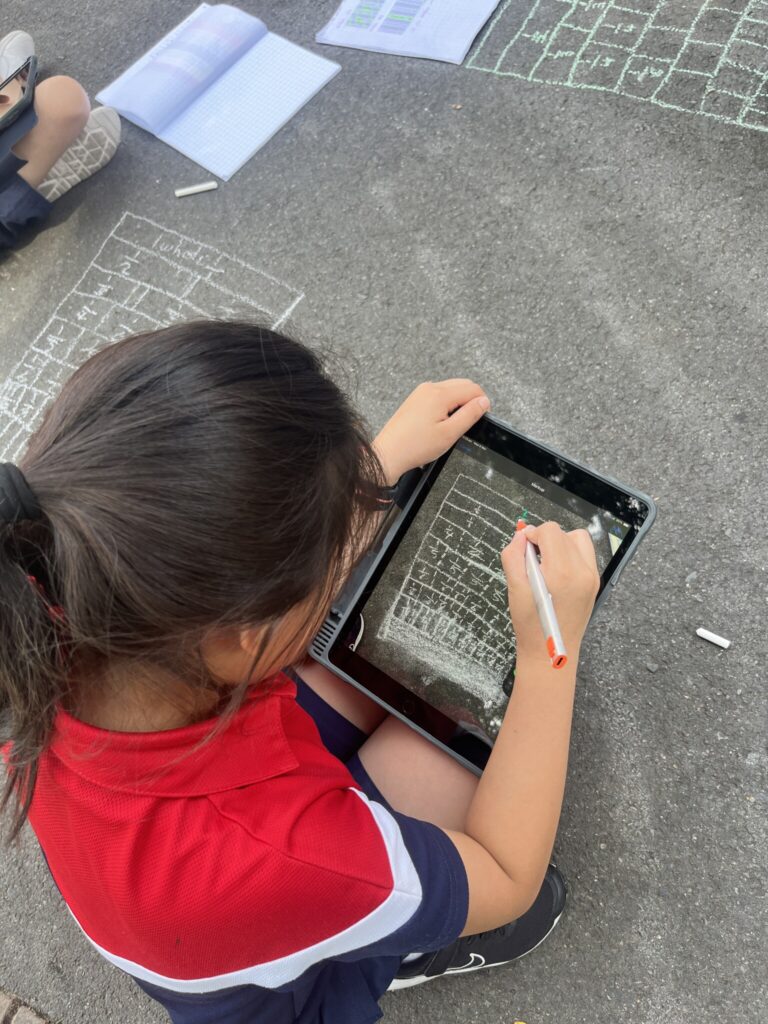
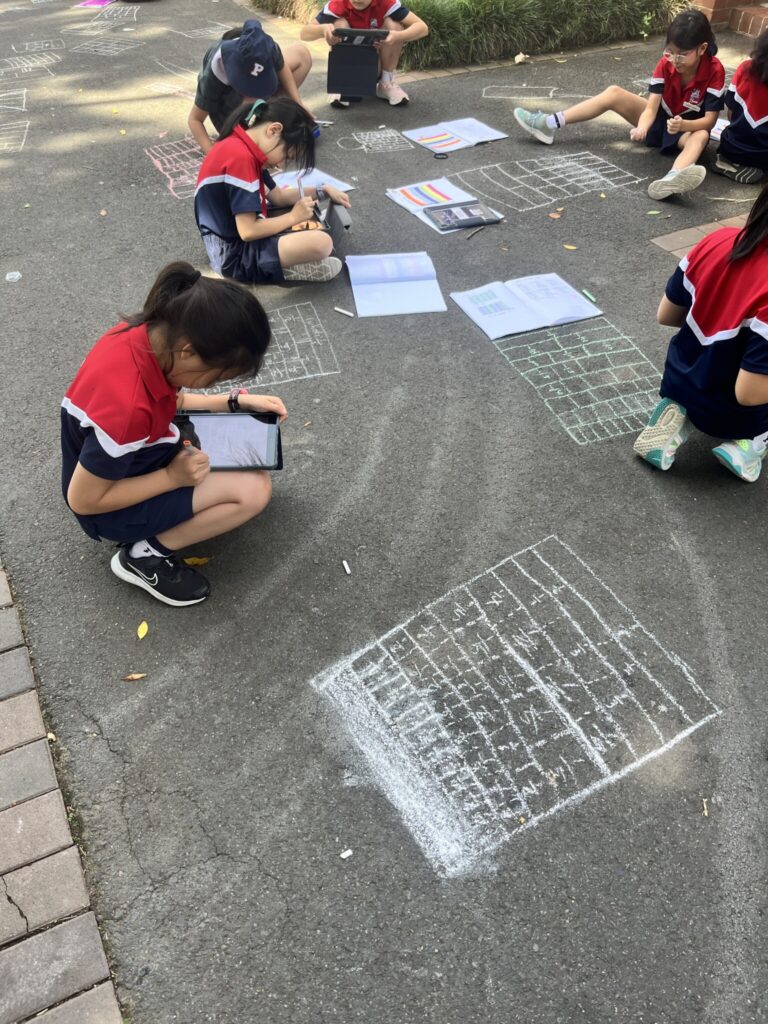
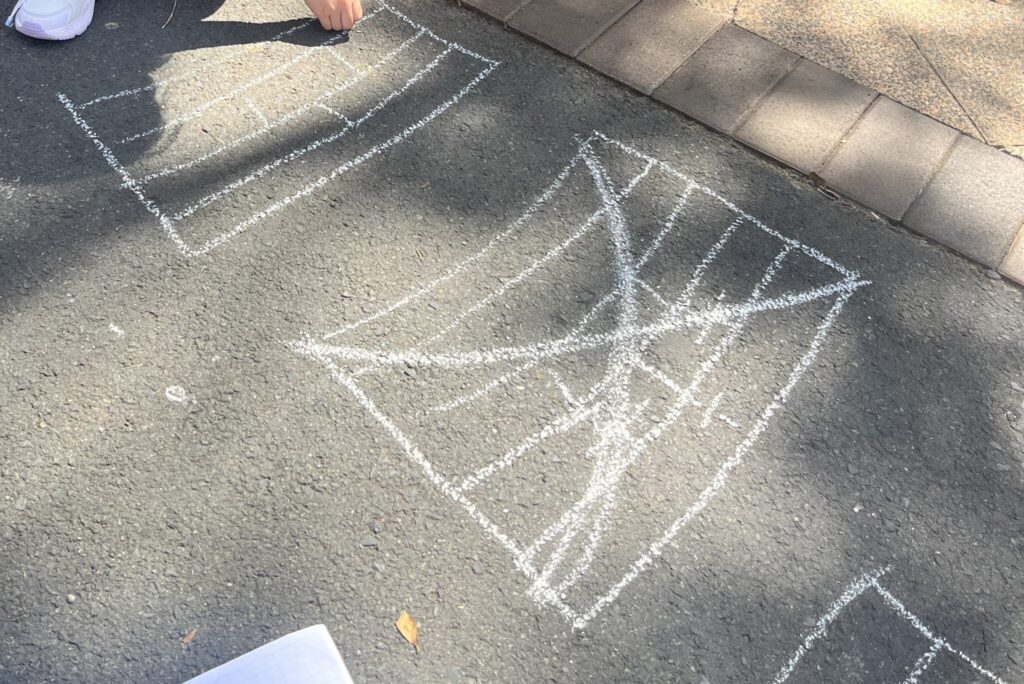
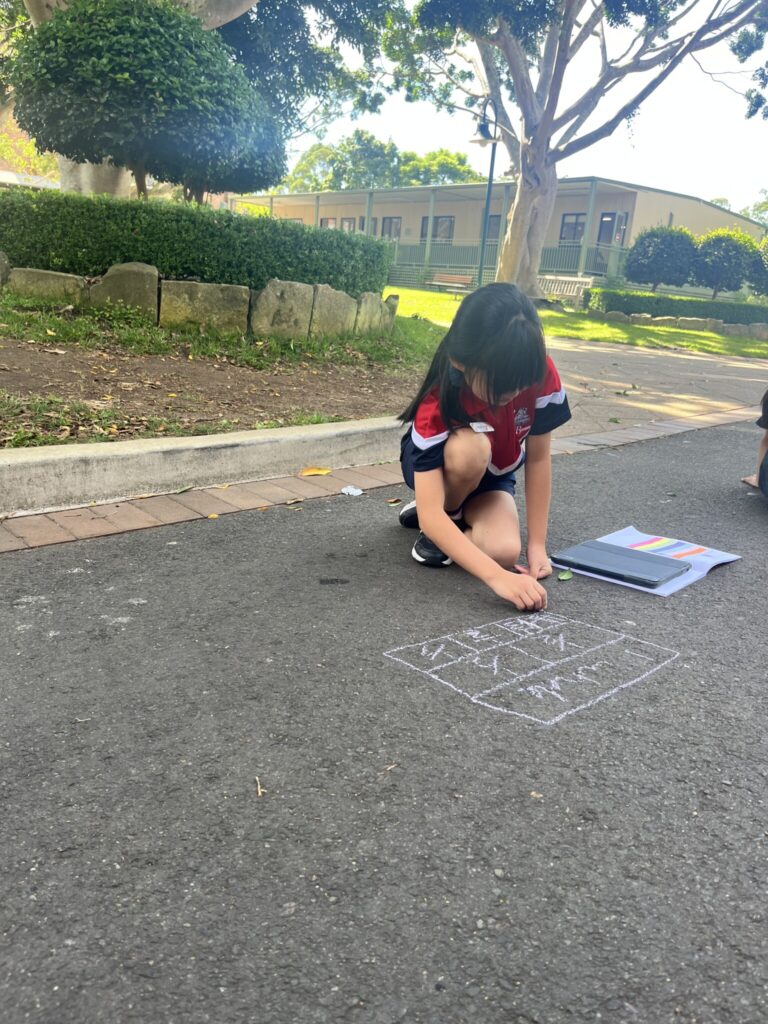
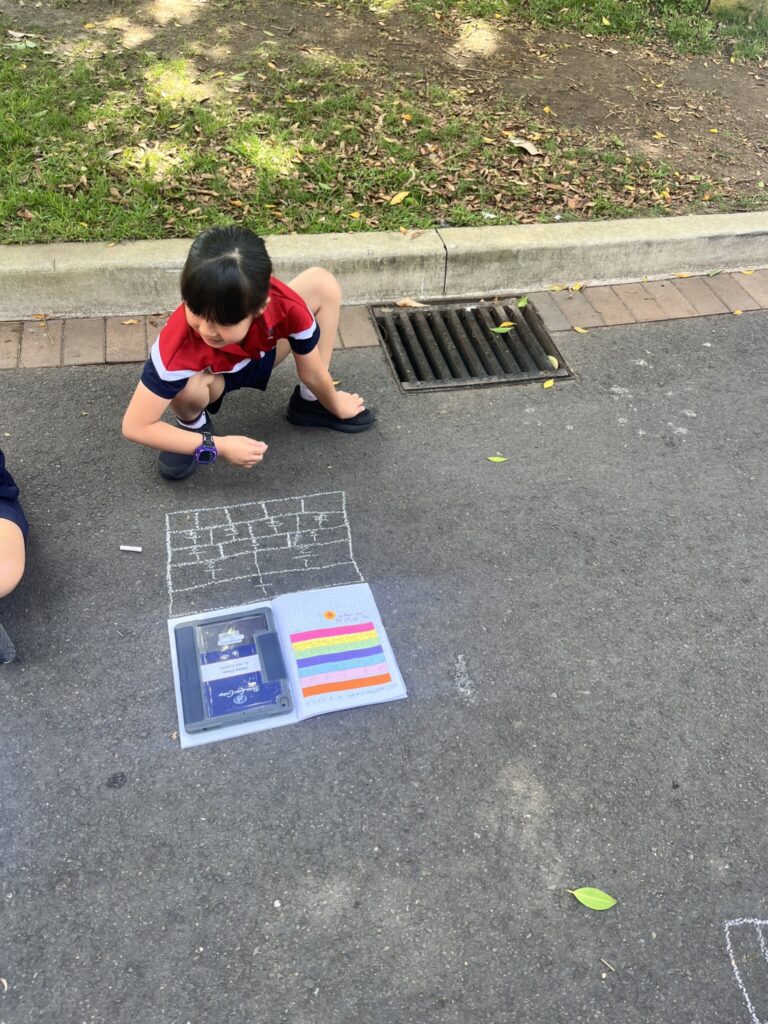
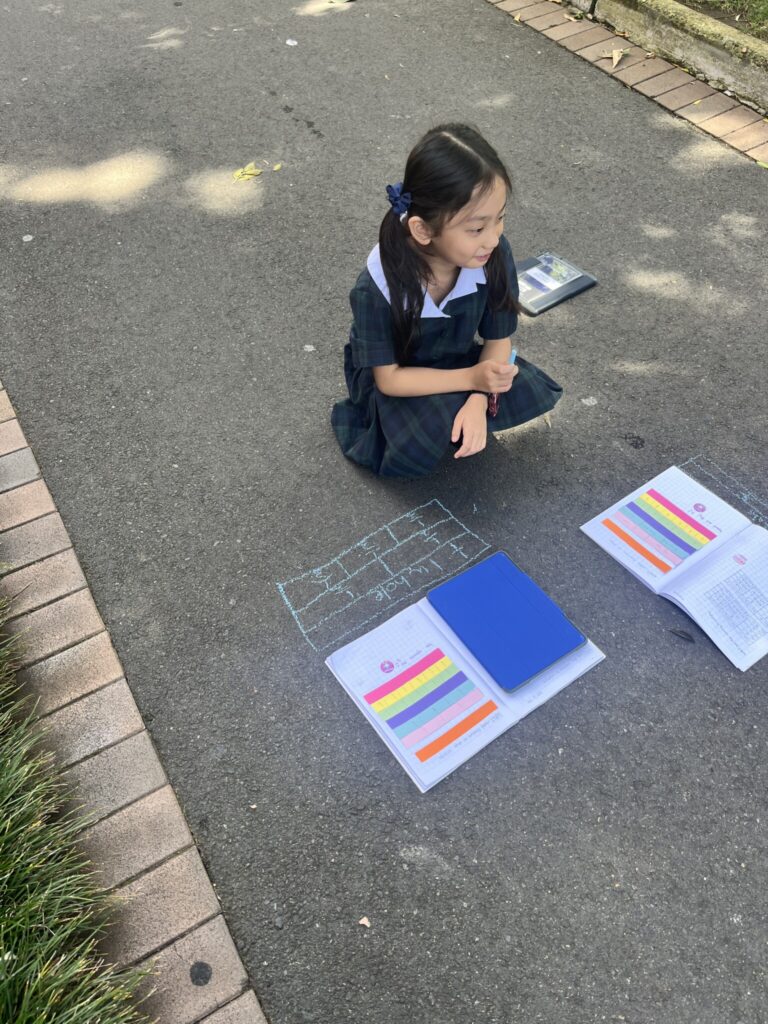
Secondary School PDHPE
“Learning about and through movement is core to the Physical Activity and Sports Studies (PASS) elective course. Year 10 PASS students recently applied their understanding of key coaching principles when they designed and coached Year 5 students in a series of cricket training sessions.
“Students enjoyed developing their leadership skills and embraced the challenge of adapting sessions to make sure all students could access the activities and have fun in the process. Highlights for students were seeing the Year 5 girls develop their confidence and skills over time.”
Mrs Alison Cruz
Head of Learning Area – PDHPE
